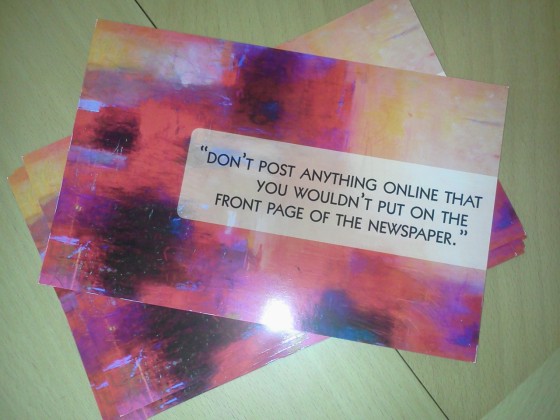
The Arizona legislature is considering a bill that would make “revenge porn” a felony. Revenge porn is the term commonly used when a person posts nude, often sexually explicit, photos or videos of another person on the internet without consent, likely after a bad break up.
House Bill 2515 would prohibit a “person from knowingly disclosing, displaying, distributing, publishing, advertising or offering a photograph, videotape or film or digital recording or other reproduction of a person engaged in a sexual act or in a state of nudity without that person’s written consent.”
If this bill becomes a law as it’s written, violating this law would be a Class 5 Felony (punishable by at least 6 months’ imprisonment and up to $150,000 fine), unless the person in the images is recognizable, then it would be a Class 4 Felony (punishable by at least 1 year in jail and up to $150,000 fine).
Arizona already has a law on the books about cyberharassment. This law is broadly written and requires the perpetrator to intend “to terrify, intimidate, threaten or harass a specific person or persons.” This new revenge porn law doesn’t require a particular intent, just the knowledge that the perpetrator knew they were posting sexually explicit material without the subject’s consent. It only looks at their behavior, not their goal regarding the alleged victim.
This bill has a long way to go before it becomes a law, and it has some opponents. Rep. Eddie Farnsworth is reported to oppose the law because people in the photos and videos often send the original images of themselves via “sexting” and they may be partially responsible for the continued distribution of the images.
“Once you send it out, I think there’s some difficulty in claiming that you have a right to privacy,” Farnsworth said. “You sent it. It’s on the entire system.”
What do you think about this bill – Should states have specific laws about revenge porn? Do you think the punishment should be up to a year in jail if the person in the photos or video can be identified?
I constantly remind people, “Think before you post.” Even if this law passes, victims’ lives could still be destroyed by revenge porn. You don’t know who is going to see it or where it might end up. If you can’t handle the responsibility of taking intimate photos or videos, don’t do it.
If you want to chat more about revenge porn and this proposed law, please check out my book The Legal Side of Blogging: How Not to get Sued, Fired, Arrested, or Killed. It has an entire chapter dedicated to invasion of privacy. You can connected with me on Twitter, Facebook, YouTube, LinkedIn, or you can email me. You can also subscribe to the Carter Law Firm newsletter.
Please visit my homepage for more information about Carter Law Firm.












